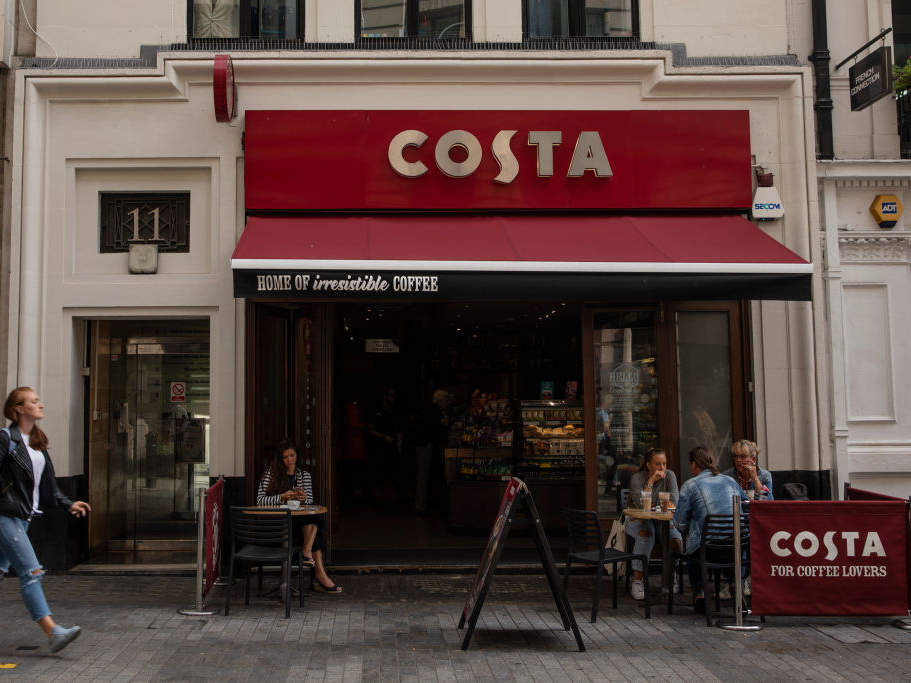- Coca-Cola just purchased British coffee-shop chain Costa Coffee for $5.1 billion.
- The beverage giant does not currently have any hot-drink offerings or direct retail outlets. The Costa Coffee acquisition marks a major step forward in both of those categories.
- Costa Coffee is headquartered in London and has nearly 4,000 stores around the world, including its own coffee roastery in England.
- Those stores will be key to future growth, according to George Lawrie of Forrester.
Coca-Cola announced on Friday that it has agreed to buy British coffee-shop chain Costa Coffee from parent company Whitbread for $5.1 billion.
The move is both large and strategic for Coca-Cola, which has struggled in recent years with the growing perception that its signature soft drinks are unhealthy. Coca-Cola has leaned on the healthier drinks in its portfolio and launched new brands that are not soda, a strategy that has seen some success.
Now, another pillar to the strategy looks to be hot drinks, where coffee is one of the fastest-growing beverage categories globally.
“Hot beverages is one of the few remaining segments of the total beverage landscape where Coca-Cola does not have a global brand,” Coca-Cola CEO James Quincey said in a statement about the Costa Coffee acquisition.
The Costa purchase is also about physical stores. Costa Coffee has a massive retail presence around the world, with 3,882 stores in 32 countries. Importantly, 459 of those stores are in China, giving Coca-Cola a footprint in a country that has historically been difficult for retailers to break into.
And Coca-Cola needs these stores, according to George Lawrie, a VP and principal analyst at Forrester.
"Local physical presence via coffee shops with long opening hours offers a brand like Coca-Cola logistical advantages in further developing direct-to-consumer and subscription business that offers significantly great customer lifetime value than using traditional brick-and-mortar distribution channels," he said in a statement.
Coca-Cola needs a way to connect directly with customers. According to Lawrie, trends like private-label growth, increasing trade spend, and Amazon's expansion into new markets around the world have created a difficult environment for Coca-Cola. Physical stores are one of the few ways left to put the product directly in front of customers.
"Acquiring Costa Coffee and developing it as a global chain would help Coca-Cola to forge a tighter relationship with consumers as well as providing local staging for last mile deliveries. Other brands such as Nestle and Pepsi ... already vigorously exploit direct-to-consumer commerce and fulfilment," Lawrie said.
Quincey said in his statement that he wants to increase the global presence of the Costa Coffee brand, though he didn't specify whether that would include bringing it into the Western Hemisphere, the only region without Costa locations.


